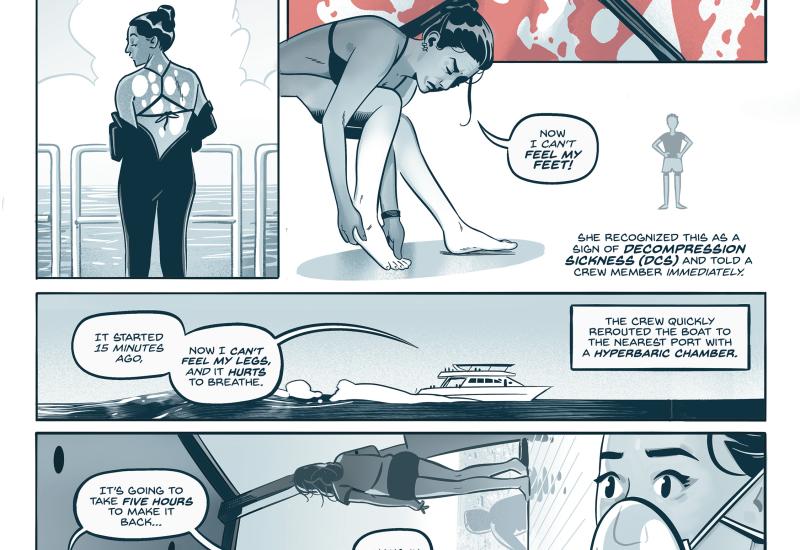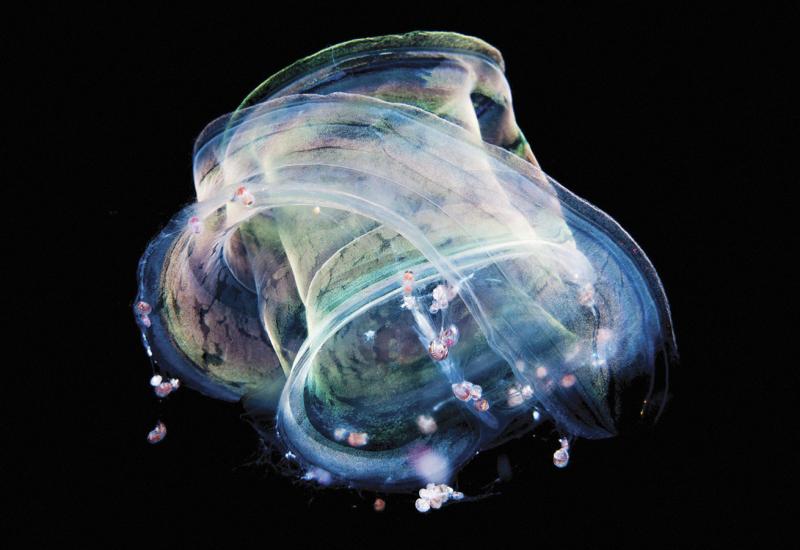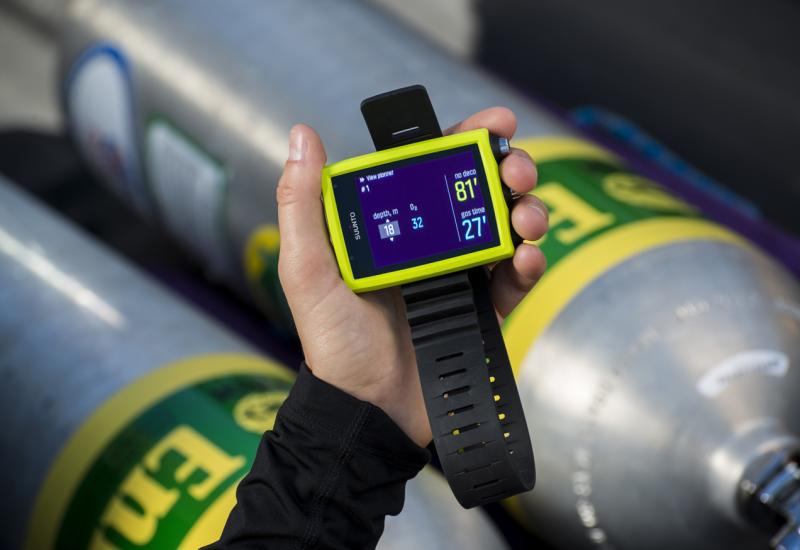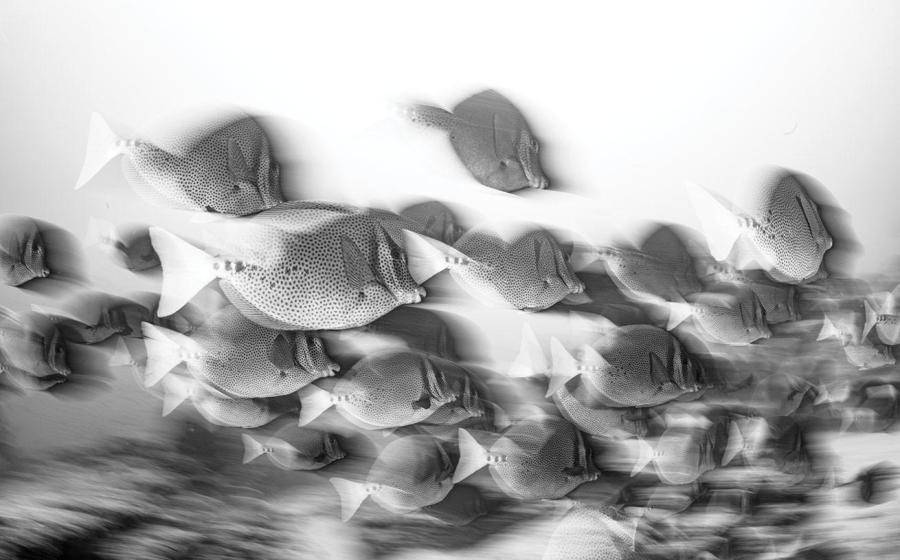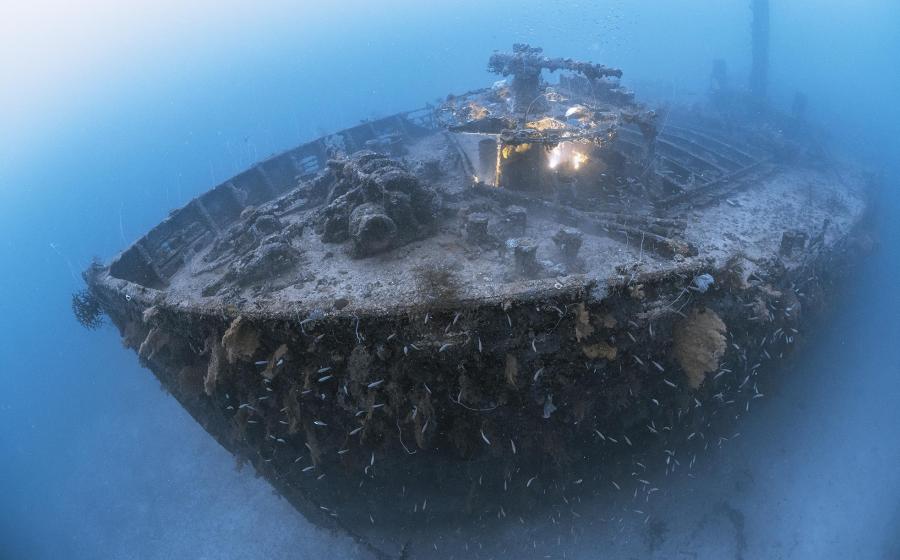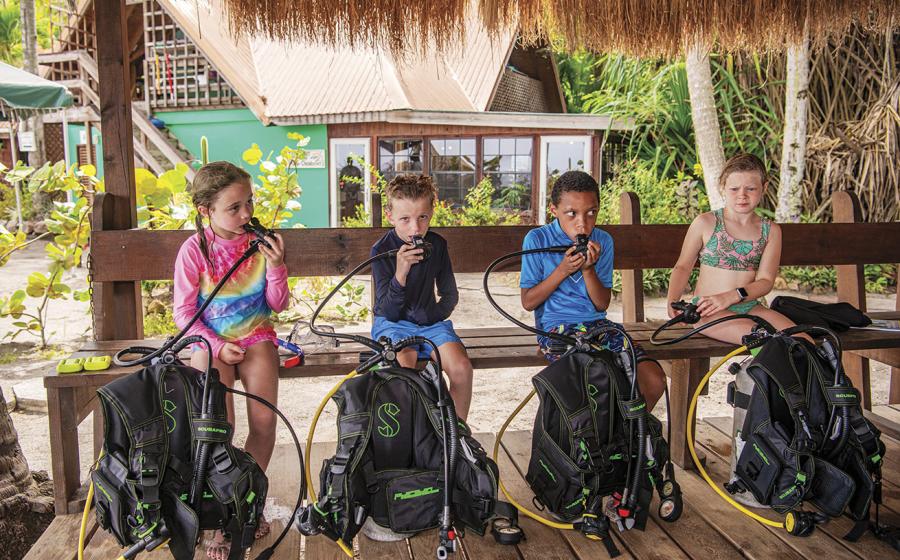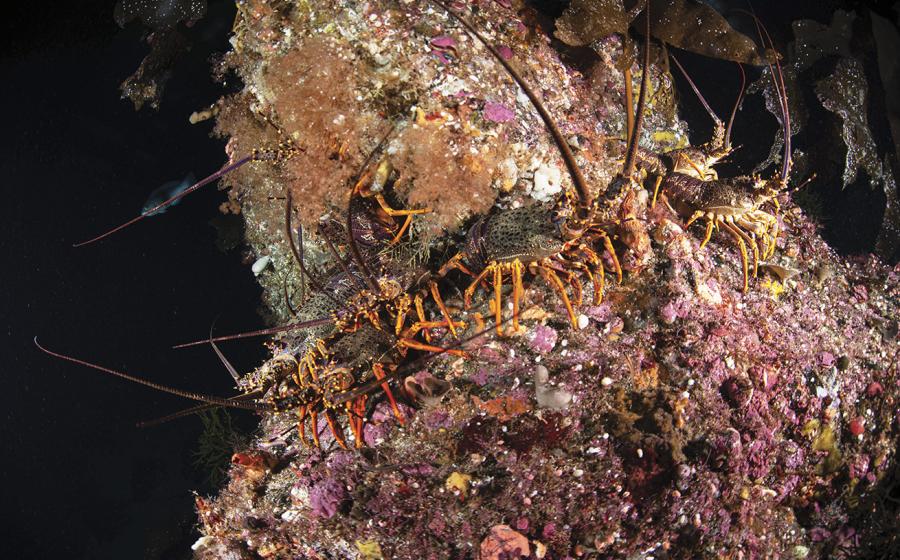Three Tips That Will Improve Your Night Dives

Annie CrawleyNurse sharks gather in the cover of darkness to hunt for food in the Maldives—a behavior that divers can only witness at night.
Diving at night reveals a new underwater world—frogfish spawning; stargazers feeding; and squid, cuttlefish and octopuses hunting. Many of my favorite dive experiences include filming and documenting animal behaviors at night. No matter your diving level, these tips will help you maximize your fun and safety on your next night diving adventure.
Keep It Simple
Plan your night dive at a familiar area and never use equipment for the first time at night. Know how to navigate the dive site and create a dive plan according to local conditions and personal diving limits. Check tides, weather and wind apps to avoid diving in high winds, weather or lightning storms. Avoid deep dives or sites prone to currents.
Limited visibility in the dark makes it harder to dive in groups at night; consider creating buddy teams within a larger group to make it easier to stay together. Choose a night dive as one of your elective dives during your Advanced Open Water Diver course, or take the Night Diver specialty course. For first-time night divers, a dusk dive—where you enter the water at twilight and exit as it gets dark—can help introduce you to night diving. As always, it’s good to tell a nondiver your plan.
Preparation Is Key
Prepare your equipment and review your buddy’s equipment. If you add buoyancy with a hooded vest or thicker wetsuit, you will need to adjust weights. Consider making any equipment changes on a day dive before embarking on your night dive. Each buddy needs a primary, a backup and a tank light. Make sure all lights are fully charged and sealed correctly.
Instead of using plastic cyalume sticks and disposable-battery-operated lights, invest in rechargeable lights and a reusable tank light. Discuss how to use your primary lights underwater so that you do not blind your buddy, and know how long your light will last on a single charge.
Flood and spot lights are used for different purposes: Flood lights illuminate large areas; spot lights provide a more concentrated beam that is great for getting someone’s attention.
Discuss how you and your buddy will communicate at night, as well as your returning air pressure. When using hand signals, hold the light above your hand to illuminate your signals, being careful not to blind your buddy. If you encounter other divers on the reef, hold your light above your head pointing down on your face to avoid getting confused with other divers in the dark. Discuss what to do if you become separated on a night dive. If you pack your backup light in a pocket, make sure each buddy knows how to access it.
Your compass and gauges may glow in the dark when you hold your light over them. Test this before entering the water, and double-check your computer settings—you may have set your light to conserve battery life on day dives. Make sure to turn on your computer light before entering the water.
Make sure your entry and exit are lit sufficiently. If you are boat diving or shore diving in unlit areas, consider securing an underwater strobe to the anchor line or a stationary object to help you find your way back. Make sure your dive is easy to navigate—like a simple out-and-back with a reciprocal heading. Avoid overhead environments and tricky spots like kelp forests, where entanglement can be a concern. When descending and ascending, use a reference line or the bottom slope to prevent disorientation, and stay close to your buddy to address any ear or mask problems.
Pro Tip
There’s nothing worse than a foggy mask on a night dive! As you don your equipment, pay close attention to preparing your mask. If you wear a hood, adjust your mask before defogging it. A foggy mask is annoying, but particularly so on a night dive when darkness already affects visibility. Fortunately, it is easily prevented.
Peek Into The Nocturnal World
It’s important to move slowly on a night dive and let your eyes adjust to the dark. Many animals exhibit new behaviors at night that you will never see during the day. If diving on a coral reef, you can observe the slow war between corals. Crabs, shrimp and lobsters crawl out of hiding places, moray eels ambush sleeping fish. You will also find that different animals come out at night.
When it comes to lighting for your night dive, there are many options. Red lights allow you to observe animals in their natural nocturnal state without spooking them with a bright-white light. Sola NightSea lights from Light & Motion allow divers to discover the hidden world of underwater fluorescence. The special blue LEDs cause proteins and minerals to fluoresce with psychedelic underwater colors that can be seen when you wear a yellow filter over your mask.
New types of night diving—such as black-water diving and bonfire diving, where a bright stationary light is set up to attract critters—have emerged for the advanced night diver. On these trips, divers experience the largest migration on the planet as the planktonic world makes a vertical migration from the deep sea to the surface and back again.
Great Night Dives:
- Six Wrecks to Dive at Night
- Best Night Diving Destinations From Around the World
- Diving Monterey Bay’s Squid Mating and Death Frenzy
- Best Manta Night Dives
Dive By The Moon
The moon influences tides as well as animal behavior. You can plan your dive travel around the world based on coral spawning, mating aggregations, and other ocean phenomena that are influenced by the seasons. Researching the moon cycle before your dive can tell you a lot about the life you may see. Turn off your lights on nights with a new moon to experience the best bioluminescence.
During your Night Diver specialty course your instructor will have you turn off your lights for three minutes, allowing you to get comfortable in the dark. You can keep your lights off to experience the glowing show during strong bioluminescent events. Wave your hand around and watch the water in front of you glow with life. Introducing my students to bioluminescence is my favorite part of night diving. Be careful during a full moon; divers can follow the bright light from the moon, thinking it is the exit point. Whether you keep your lights on or off, night diving will add new dive opportunities for you around the world.

